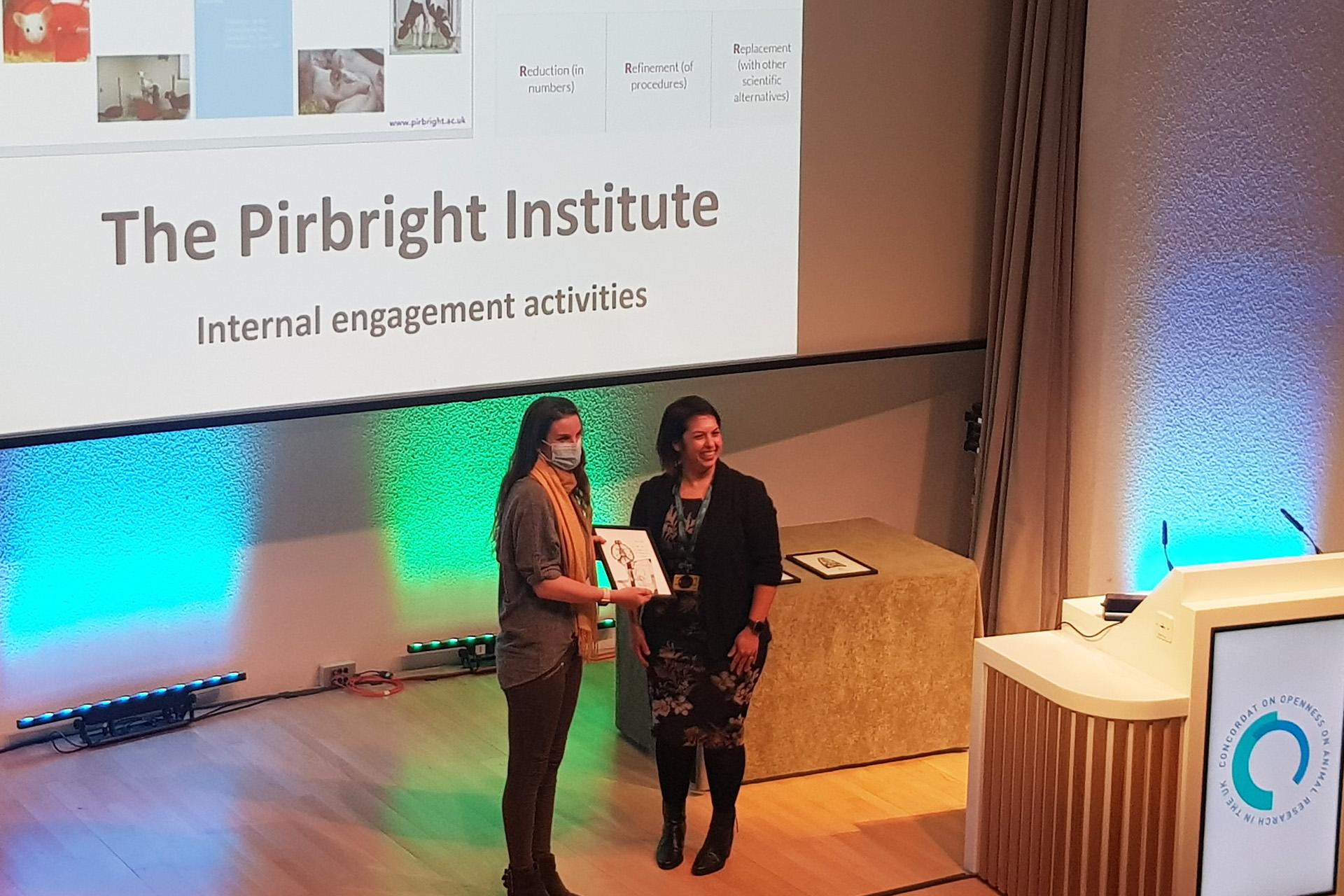On Monday 6 December, The Pirbright Institute won the Internal Engagement category at the eighth annual Understanding Animal Research (UAR) Openness Awards for its exemplary approach to internal engagement practices, and its joined-up approach to research to ensure clarity and transparency around our research with animals.
The Openness Awards mark the efforts of UK research facilities to be open and transparent about their use of animals in research. Receiving this award is recognition of Pirbright’s culture of staff development and engagement as well its commitment to the Concordat on Openness on Animal Research.
The proportionate use of animals is integral in the development of new viral disease control methods such as veterinary vaccines and diagnostics, which safeguard the wellbeing of countless livestock and the livelihoods of their owners. Our internal engagement activities ensure that everyone at the Institute is aware of the research that we carry out and why.
Beginning at the interview stage, every candidate, irrespective of job role, is advised that the Institute’s scientific research involves the use of animal and the reasons why this is essential are explained. All new starters to the Institute receive an induction from the Animal Services department which covers topics including animal care and welfare standards, culture of care, 3Rs (reduce, refine and replace the use of animals wherever possible) and legislation. This is then followed up with a mandatory online training course and assessment to solidify the information.
These practices continue beyond the interview and induction stage and transparency and openness are embedded in our working culture. There is an open-door policy at Animal Welfare & Ethical Review Body (AWERB) meetings, animal facility tours are available to staff, case studies, posters, ‘useful links’ and more are readily available on the intranet and there is a clear whistleblowing policy and process in place for reporting any concerns relating to animal care, treatment and welfare.
Whilst these individual practices may not be unique to Pirbright, on presenting the award, Rachel Lambert-Forsyth, Chief Executive of the British Pharmacological Society and Managing Director of BPS Assessment Ltd, said: “The joined-up approach is exceptional and deserves recognition. The judging committee felt that whilst others should be taking these bold steps towards connecting openness and animal welfare, no other approaches, so far as they are aware, are so cohesive.”
The judges also acknowledged that Pirbright had faced protests for the first time in its history during 2021 and hoped that the Institute would “continue to engage and support their staff and others with the reality of their animal research”, the impact of which improves the global health of livestock and welfare of animals and humans by reducing the burden of viral diseases.
Image: Lauren Cresser accepting Pirbright’s Openness Award from Rachel Lambert Forsyth, Chief Executive of the British Pharmacological Society, on stage at the Royal College of Physicians on 6 December 2021
